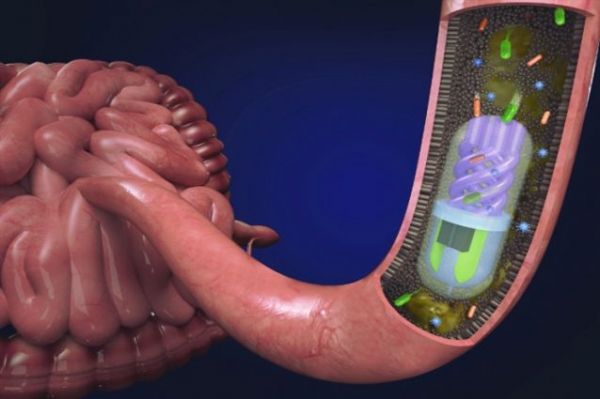A research team led by Tufts University engineers has developed a 3D printed pill that samples bacteria found in the gut -- known as the microbiome -- as it passes through the gastrointestinal tract (GI). The ability to profile bacterial species inhabiting the gut could have important implications for the diagnosis and treatment of conditions that are affected by the microbiome, according to the researchers.
The 3D printed pill described in the journal Advanced Intelligent Systems represents the first non-invasive diagnostic tool capable of providing a profile of microbiome populations throughout the entire GI tract, according to the researchers. Current methods of sampling the microbiome involve analysis of fecal DNA and metabolites, but that approach provides little information of the environment upstream of the distal colon, where bacterial species can vary significantly.
The pill has been studied and found to provide accurate identification of bacterial populations and their relative abundance in both in vitro and in vivo applications, the paper says. It has been tested in pigs and primates, yet clinical trials will be needed to determine if the pill can be used routinely in humans for clinical care.
Read more at Tufts University
Image: Microbiome sampling pill in the small intestine. CREDIT: Nano Lab, Tufts University


